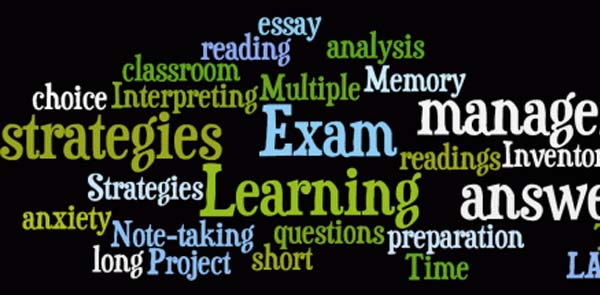Study Methods Part 2

Study Methods, the Magic for Studying
November 28, 2016
5 SYMPTOMS THAT YOUR WEBSITE IS YOUR SECOND SIGNPOST
March 20, 2017Study Method Continuation:
For Better Understanding, read the STUDY METHOD PART 1
6. Chunking:
You should be looking for patterns and connections in the material you’re studying. For instance in Quantitative Reasoning, your challenge is to discover the patterns of the numbers that appear, and follow that pattern, to arrive at the answers.
That, is a type of Chunking.
Even Acronyms like Mr. Niger( earlier mentioned), come under the same umbrella.
If you have to remember a phone number for instance, and you substitute each no. with a rhyming word, in order to help you remember it, you are employing the Chunking method;
08122264949 could become
Shirro ate a bun(081)
Shoo shoo shoo(222)
Sticks & Doors(64)
Fine Doors Fine(949)
Or this other style;
Zero Eight One
Two Two Two Dix
Four nine, four nine
(in a sing song, tv jingle fashion)
Here, I’ve grouped the numbers in a way that i can recite and remember easily.
Get the gist now?
lifehacker.com/5946606/improve-your-memory-with-the-chunking-technique
7. Jotting:
Perhaps this ought to have been my first tip considering that the classroom experience, is where it all starts;
Always ensure that you’re in class early enough to collect and organize your thoughts, in preparation for the learning you’re about to receive.
You should at least have on you;
- A sizeable flip jotter
- Your texts
- Your notebook
- A pencil case(well stocked as required)
From the beginning, jot down everything the teacher says, both relevant and irrelevant; infact, everything else that happens during the class, that the teacher notices.
For instance;
Does he scold someone? Write it down.
Were any questions asked? Write them down.
What were your teacher’s answers? Write them down.
Were there any jokes? Does anyone do anything to amuse the class?
You can even input smileys, quick cartoons if you can be that quick, personal jokes, lols, rotfls, and the likes.
Indeed, all that happens in the class, but stay within your teacher’s vision so you don’t end up distracting yourself.
The Advantages;
The idea here is that you want to own the entire classroom experience. This can keep your attention going, even in the most boring classes.
Also, you’re more likely to remember any experience that is attached to a particular emotion you experienced(you’ve dealt with “indifference”). This way, you have yourself, you make yourself an insanely interesting, journal-like jotter, that you’re attached to, and you love. You know, like a reporter for the class!
Do be part of the class also, asking and answering questions, no matter how silly you think they sound. Just be sincere with your interaction, and keep the class up-beat and engaging, for yourself.
This revolutionized my studying totally. Largely responsible for my love for my 14 As in 14 subjects, JSCE. I would often remember exactly what the teacher said, when, and who was doing what in the class at the time.
More on Interactive jotting/note taking….
8. Note Taking:
This too should’ve come the earliest, along with Jotting.
-
Use capital letters, underlining, coloured pens, bright felt tips, neon pens,gumbo bears, and the likes, to differentiate headings, and sub heads.
-
Use numbers and alphabets to pin your points, coloured pens also, if you’re not required to submit your notes.
-
Ensure your note is always neat, easy to read, and well organized.
-
When using your own words, do not do away with the technical terms of the subject like you don’t say, “growing” a crop(Agriculture), when you mean, “cultivating” a crop.
Advantages;
-
You have something to do while reading, rather than just “cramming”.
-
You get to interprete the material, in your own words(retaining the technical terms).
9. Over-Learning:
Everybody learns by repitition. The reason Coca Cola would tell you “Coke is it”, over and over again. So, you apply repetition in your learning, and re-learn the material over and over, practice it again and again, in varied forms, if possible.
One easy way to over-learn,a is to transfer your learning, to all or some of your other senses.
For instance, after a lecture on Economies of Scale, which you received through your ears(hearing), you can look for a documentary or You Tube video on the topic to watch, have a group debate on it(taste), visit a sample business area(touch), and so on. You get the idea?
This way, you have a wildly fun time of learning, don’t you think?
10. Studying For Exams:
Ensure that you have the following materials, handy;
- The Syllabus
- Past Question Papers(compilation)
- The Required Texts
- A Big Notebook
Your syllabus will stream line your studying, and stop you from understudying, or overstudying. You’ll have before you, the scope of your studies, as is expected of you.
The past questions on the other hand, will groom your rhythm, for the actual exams. You get used to the type of questioning that the examiners would employ, usually.
Note also, that questions are often repeated, so you may just be fortunate.
Questions You Should Be Asking Yourself;
a) How do I organize my study time in order to cover my syllabus and past questions, leaving ample time for Revision, before my actual exams?
b) How many subjects/courses will you study per day/week/month?
c) How many topics will you cover per subject/course, per day/week/month?
Once you’ve answered these questions for yourself, you can then schedule your time with the calendar daily, as earlier mentioned.
Note: Discipline should be your watchword. If you miss any one day, you just continue from where you stopped, and aim to meet up with where you’re supposed to be.
Alternatively, you may decide to use daily to-do lists, and spend 2 to 4 hours everyday , religiously, on your private studies. You just make a to do list each day, from where you stopped, for the following day.
Whichever method works for you.




1 Comment
WOw! what an interesting and insightful article, i had just gain alot from what i read just now,i’m passing this link to all my friends right away, thanks alot Nortify!